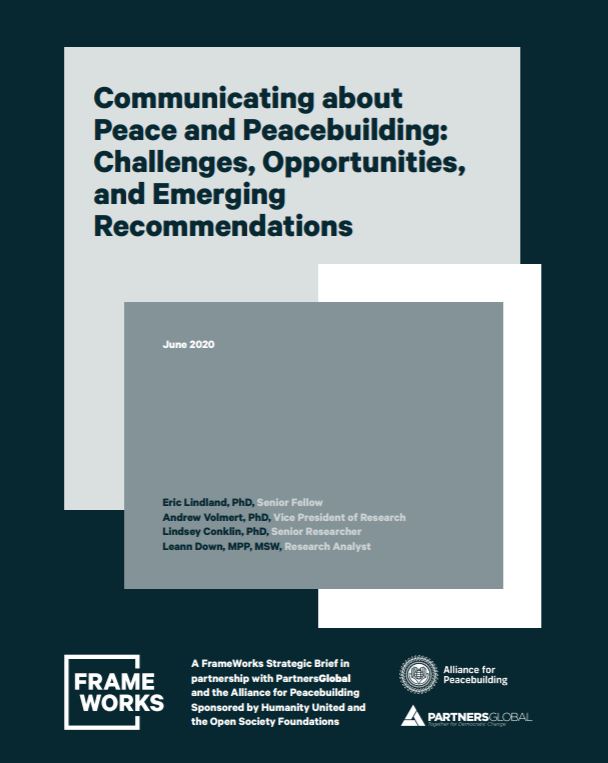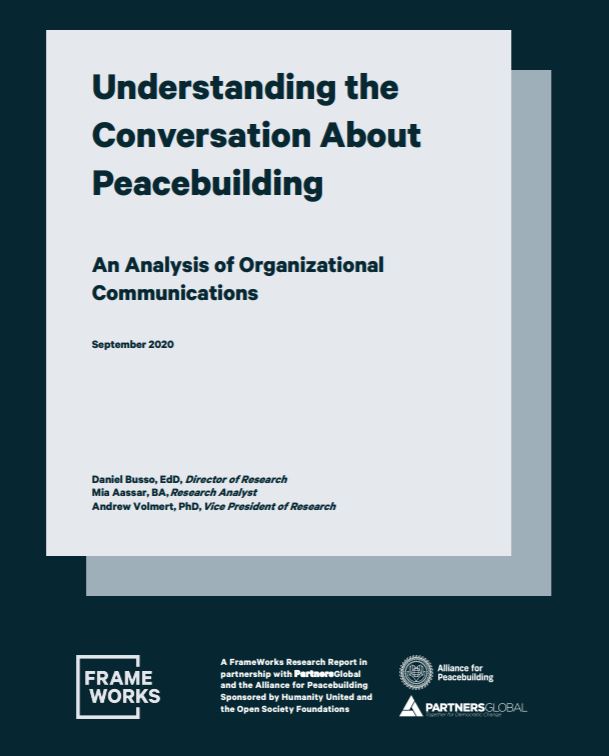As a part of our broader Narratives for Peace initiative, PartnersGlobal, together with the Alliance for Peacebuilding, has been investing in bridging narrative theory and practice to make “peacebuilding” a more salient policy priority for the broader public. With support from Humanity United and the Open Society Foundations, we are working closely with Frameworks Institute on a social science research project to uncover effective narrative frames for peacebuilding in US foreign policy.
Explore the research
Click on the reports to learn more about the research findings.
The research surfaces the common frames and narratives used by the peacebuilding field on the one hand and the ways the public perceives peace on the other. The research also offers recommendations on how peacebuilding experts can more effectively communicate and better frame their messaging to resonate with the American public and increase support for peacebuilding.
Click here for Frameworks’ Research Methods and Sample Composition.
To watch our webinar of the research team presenting the Cultural Models findings on public narratives around peace and peacebuilding, click here or watch the video below.


